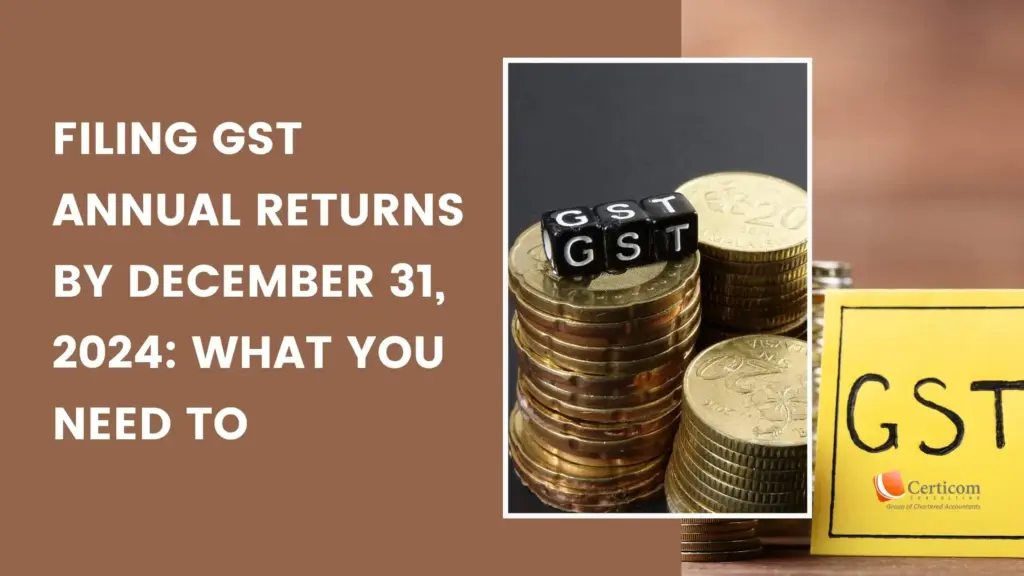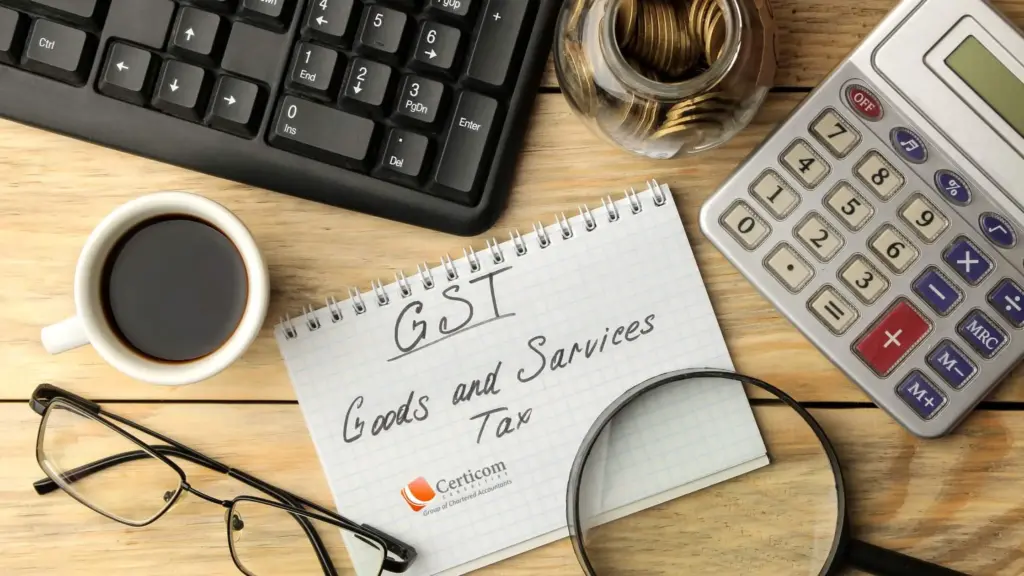Filing GST Annual Returns by December 31, 2024: What You Need to Know

The deadline for submitting the GST annual return for the financial year 2023-24 is December 31, 2024. Taxpayers can use Form GSTR-9 or GSTR-9A, depending on their registration type. Importantly, annual returns can only be filed if the GST Identification Number (GSTIN) was active for the entire relevant financial year.
Before filing the annual return, all applicable periodic returns, such as Form GSTR-1/IFF and Form GSTR-3B, for the financial year must be submitted.
Who Must File GST Annual Returns by December 31, 2024?
The following categories of GST-registered taxpayers are required to file an annual GST return:
-
Regular GST Taxpayers:
Taxpayers registered under the regular GST scheme and holding a GST registration at any point during the financial year must file Form GSTR-9. -
Composition Scheme Taxpayers:
Taxpayers registered under the composition scheme must file their annual return using Form GSTR-9A.
Exemptions from Filing GST Annual Returns
Certain categories of taxpayers are exempt from filing annual GST returns. These include:
- Input Service Distributors (ISD)
- TDS Deductors (taxpayers liable to deduct tax under Section 51)
- TCS Collectors (taxpayers liable to collect tax under Section 52)
- Casual Taxable Persons
- Non-Resident Taxable Persons
Additionally, for taxpayers with an aggregate annual turnover of less than ₹2 crore, filing Form GSTR-9 is optional for the financial years 2017-18 through 2023-24.

Filing Time Barred Annual Returns
It is crucial to file the GST annual return within the prescribed timeline, as it cannot be submitted if three years have passed from its due date. Once time-barred, filing becomes invalid.
Filing Nil GST Annual Returns
A nil GST annual return (Form GSTR-9) can be filed if the taxpayer meets all the following conditions:
- No outward supplies (sales) were made.
- No goods or services (purchases) were received.
- No tax liability existed.
- No input tax credit (ITC) was claimed.
- No refund applications were made.
- No orders creating a demand were issued.
- No late fees were pending for payment.
Penalty for Late Filing of GST Annual Returns
Late filing of the GST annual return attracts a penalty in the form of a late fee, which varies based on the taxpayer’s turnover:
| Turnover Range | Late Fee per Day | Maximum Late Fee |
|---|---|---|
| Up to ₹5 crore | ₹50 (₹25 CGST + ₹25 SGST) | 0.04% of turnover in the state/UT (0.02% CGST + 0.02% SGST) |
| More than ₹5 crore and up to ₹20 crore | ₹100 (₹50 CGST + ₹50 SGST) | 0.04% of turnover in the state/UT (0.02% CGST + 0.02% SGST) |
| More than ₹20 crore | ₹200 (₹100 CGST + ₹100 SGST) | 0.50% of turnover in the state/UT (0.25% CGST + 0.25% SGST) |
Filing the GST annual return on time is essential to avoid penalties and ensure compliance. Taxpayers should verify that all relevant monthly or quarterly returns are filed before attempting to submit their annual return. For those eligible for exemptions or nil returns, the process is simplified, but it still requires timely action. By adhering to these guidelines, taxpayers can meet their obligations without complications.
Related Post
A Beginner’s Guide to E-Filing Income Tax Return for FY 2024-25
Faking Tax Deductions? You Could Be Penalised Up To 200% Under Income Tax Rules
Book A One To One Consultation Now For FREE
How can we help? *




